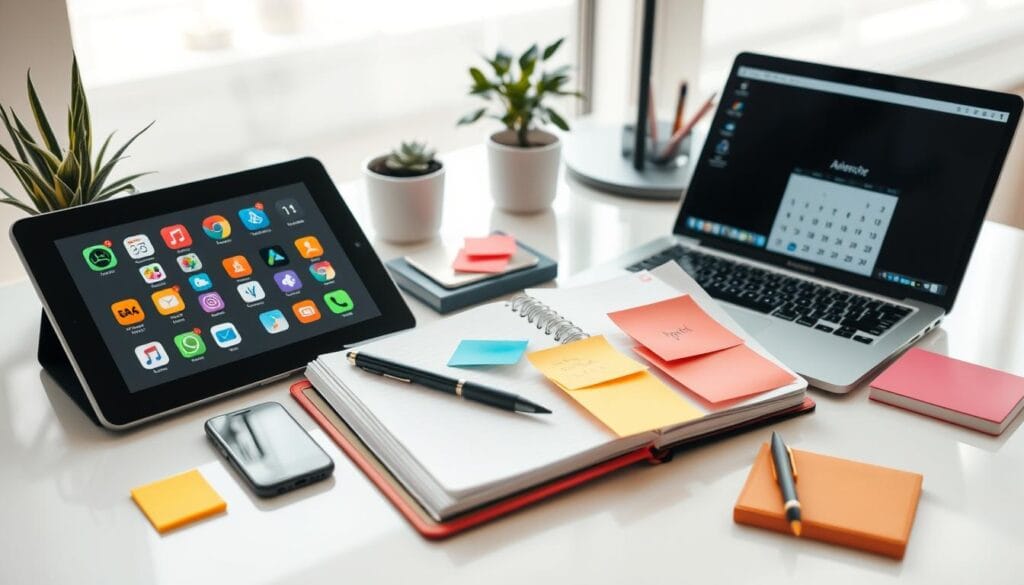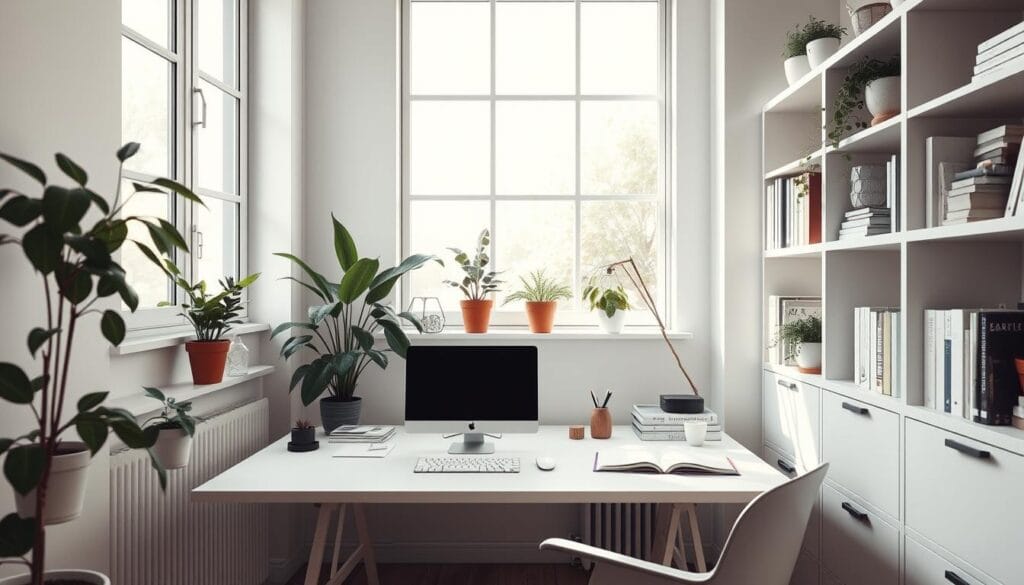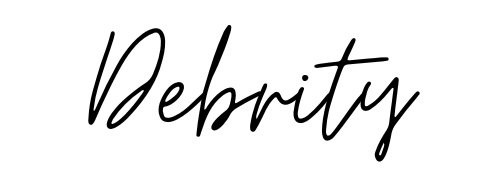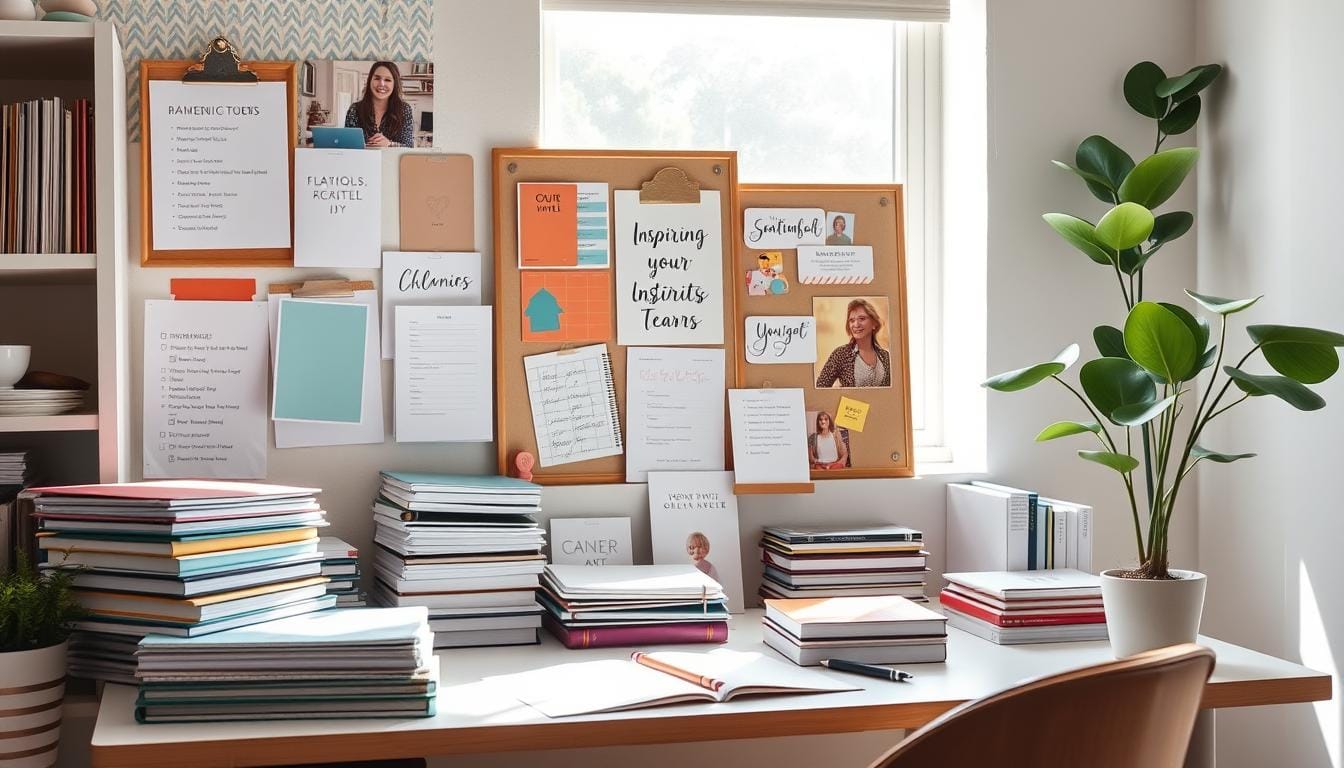Ever felt like your life was spiraling into chaos? Maybe your desk looks like a paper hurricane hit it. Or your to-do list feels as big as Mount Everest. You’re not alone.
Organizing your life might seem like climbing a huge mountain. But with the right tips, you can change your world in just one day. Imagine waking up to a day where every task flows smoothly and stress disappears.
Decluttering isn’t just about cleaning up. It’s about clearing your mind too. Research shows that using systematic approaches can make you 42% more likely to reach your goals.
This guide isn’t about being perfect. It’s about finding systems that fit your life. We’ll show you how to make your space and mind clearer. This will help you take control and stay productive without feeling overwhelmed.
Table of Contents
Understanding the Signs of Mental and Physical Clutter
Decluttering is more than just tidying up your space. It’s about reducing stress and boosting productivity. The mess around you can block your mental path to success.
A study from the University of San Diego shows distractions make our brains go into fight or flight mode. This makes it hard to focus and stay productive. Knowing the signs of clutter is the first step to a more organized life.
Physical Signs of Disorganization
- Overflowing closets and drawers
- Cluttered workspace with papers everywhere
- Difficulty finding essential items quickly
- Constantly misplacing important documents
Mental Overwhelm Indicators
Harvard Medical School research shows expressive writing can clear your mind. Look out for these signs of mental overwhelm:
- Constant racing thoughts
- Growing to-do list with nothing completed
- Persistent feeling of being stuck
- Inability to make decisive decisions
Impact on Daily Productivity
Psychology Today notes that a to-do list can help overcome mental barriers. When clutter builds up, your productivity drops. Stress reduction is key to staying focused and reaching your goals.
“Clear space, clear mind – organization is the key to unlocking your potential.” – Productivity Expert
By spotting these signs early, you can start to declutter. This will improve your productivity and overall well-being.
Why Traditional Time Management Fails
Traditional time management methods often add stress, not solutions. The old productivity tricks might actually slow you down. Despite spending millions on planners and apps, many still can’t manage their time well.
“Time management is not about doing more, but about doing what matters most.” – Unknown
Here’s why traditional time management doesn’t work:
- Rigid Scheduling: Trying to plan every minute takes away flexibility
- Unrealistic Expectations: Setting daily goals that are too high can lead to failure
- Ignoring Personal Energy Cycles: Trying to be productive when you’re not
Time management has evolved, showing us important lessons:
- First Generation: Simple to-do lists without thinking about what’s most important
- Second Generation: Scheduling every minute, with no room for change
- Third Generation: Focusing on goals and prioritizing tasks
Your time management should be as flexible as your life. Bad planning increases stress and lowers productivity. A good system knows life is unpredictable and allows for flexibility.
Effective time management isn’t about controlling every moment. It’s about creating a system that lets you adapt, focus on what’s important, and achieve your goals with less stress and more confidence.
The Power of Mental Decluttering First
Decluttering isn’t just about tidying up your space. It’s also about clearing your mind. This helps reduce stress and boosts your productivity. Studies show that mental clutter can really affect your well-being and how well you do things.
Understanding how mental chaos impacts your life is key to stress reduction. Research shows that cluttered environments lead to higher cortisol levels. This means more anxiety and less focus for you.
Brain Dump Techniques
A brain dump is a great way to clear your mind. Here’s how to do it right:
- Grab a notebook or digital device
- Write down every single thought without judgment
- Don’t organize or filter your thoughts initially
- Set a timer for 10-15 minutes
Mind Sweep Strategy
The mind sweep strategy is different. It involves organizing your thoughts into categories. Here’s how to do it:
| Category | Action Required |
|---|---|
| Work Tasks | Prioritize and schedule |
| Personal Goals | Create actionable steps |
| Emotional Concerns | Address or seek support |
Emotional Release Methods
“Clearing your mind is like cleaning a dusty window – suddenly, everything becomes clearer.” – Mental Health Expert
Emotional release is key to decluttering your mind. Try these methods:
- Journaling to process feelings
- Meditation and mindfulness practices
- Talking with a trusted friend or therapist
- Practicing daily gratitude
Remember, mental decluttering is an ongoing process. Spend a few minutes each day to keep your mind clear. This will help lower your stress and increase your productivity.
Creating Your Personal Organization System
Creating a personal organization system changes how you manage your life and use productivity hacks. It should be flexible, easy to use, and fit your lifestyle and goals.
First, understand your workflow and challenges. An effective system is not one-size-fits-all. It’s tailored to your needs.
- Digital Tools Selection: Choose platforms like Notion or Trello for comprehensive tracking
- Task Categorization: Segment activities into clear, manageable groups
- Accessibility: Ensure your system works across multiple devices
- Regular Review: Schedule weekly and monthly system assessments
Pro Tip: Think of your organization system as a “second brain” – a reliable external memory that stores information, reduces mental clutter, and boosts productivity.
“Organization isn’t about perfection; it’s about efficiency, reducing stress, and creating a system that works for you.” – Unknown
Build a system that covers different areas of your life:
- Work Tasks Management
- Personal Goal Tracking
- Financial Planning
- Daily Routine Optimization
Your personal organization system is a living document. Be ready to make changes as your life changes. This ensures it stays a powerful tool for productivity and life management.
Organize Your Life: The Boulder-Rock-Pebble Method
Imagine managing your life like a well-planned potluck dinner in Louisiana. You arrange dishes from main courses to sides. The Boulder-Rock-Pebble method helps you prioritize tasks and boost productivity.
Stephen Covey’s time management approach divides tasks into three levels. It helps you improve your daily workflow and goal setting.
Identifying Your Boulders
Boulders are your biggest life commitments. They are key activities that shape your long-term success. Examples include:
- Personal development planning
- Career strategic mapping
- Relationship nurturing
- Health and wellness investments
Managing Big Rocks
Big rocks are urgent, high-impact projects that need your immediate focus. They are like time-sensitive work assignments or critical deadlines that affect your career.
“Focus on your big rocks first, and the pebbles will find their place.” – Productivity Wisdom
Handling Daily Pebbles
Pebbles are smaller, routine tasks that fill your day. While important, they shouldn’t take over your goals. Good time management means spending the right amount of time on these tasks.
| Task Category | Priority Level | Time Allocation |
|---|---|---|
| Boulders | High | 40-50% of time |
| Big Rocks | Medium-High | 30-40% of time |
| Pebbles | Low | 10-20% of time |
By using this method, you’ll change how you manage time. You’ll make sure your most important goals stay in focus.
Digital Organization and Productivity Tools

Learning to organize digitally can change your life. It makes work easier and cuts down on stress. The right tools can save you hours and make your work flow better.
Start by picking tools that fit into your daily life. Notion is great for tracking goals, managing tasks, and documenting your work.
- Notion: Comprehensive digital workspace for organizing work
- Biscuit Browser: Separate communication platform to reduce browser chaos
- MenubarX: Quick access to essential apps on Mac devices
“Technology should simplify your life, not complicate it.” – Productivity Expert
Think about devices that help you focus. The BOOX Palma “dumbphone” has an E-ink screen. It cuts down on distractions and has apps for meditation, reading, and notes.
Statistics show how much time we waste without good digital organization:
- 32% of people lose 1-2 hours daily due to poor time management
- 40% of work time is wasted through disorganization
- 80% of medical expenses are stress-related, often stemming from poor organization
Using digital productivity hacks is more than just tools. It’s about a system for managing your digital space. Pick tools that match your workflow, work well together, and keep you focused on what’s important.
Establishing Daily Routines That Stick
Creating effective daily routines is key to being productive and managing time well. Your routine should fit your lifestyle and energy levels. It’s like a flexible plan that changes as you do.
To form good habits, know your natural rhythms. Some people are most active in the morning, others in the evening. The goal is to make a routine that matches your body’s natural flow.
Morning Routine Blueprint
A strong morning routine sets the day’s tone. Here are some key steps:
- Wake up at the same time every day
- Drink water right away
- Do 10 minutes of meditation or journaling
- Do a quick workout or stretch
- Check your goals for the day
Evening Wind-Down Process
Your evening routine should ease you into relaxation. It should help clear your mind and get you ready for sleep:
- Look back at what you achieved today
- Plan what you’ll do tomorrow
- Turn off all screens
- Try some calming activities
- Get your workspace ready for tomorrow
Weekly Reset Ritual
Set aside time each week to reflect and reset. Sundays are often the best day for this. Use it to check your progress, adjust your goals, and tidy up your space.
“Routine is a powerful tool. Master your routine, and you master your life.” – Productivity Expert
Building lasting habits requires dedication. Stick to your routine for at least 30 days. Be flexible and keep improving it to boost your productivity and happiness.
Physical Space Organization Strategies
Decluttering isn’t just about cleaning up. It’s about taking back your mental peace and control. Studies show that clutter can really affect your stress and well-being.

Start organizing your life with small tasks. The 15-minute decluttering method can change your space without feeling too much. Here are some key strategies for organizing your space:
- Implement the 4-Box Method:
- Keep essential items
- Donate unused possessions
- Toss unnecessary things
- Relocate misplaced objects
- Apply the “one-year rule” for clothing and accessories
- Create designated spaces for frequently used items
- Use vertical storage solutions to maximize space
“Clutter is nothing more than postponed decisions.” – Barbara Hemphill
Minimalism isn’t about getting rid of everything. It’s about keeping what’s truly important. Studies show that organized spaces can lower stress and help you make better choices.
| Decluttering Impact | Psychological Benefits |
|---|---|
| 15-minute organization | Reduced stress levels |
| Vertical storage use | Increased mental clarity |
| 4-Box Method | Enhanced decision-making |
Organizing your life is a journey. Start small, stay consistent, and see how a clean space changes your mind.
Maintaining Work-Life Balance Through Organization
Achieving a healthy work-life balance is key for success. The modern workplace demands a lot, but smart organization can help. It keeps your well-being intact.
Setting Boundaries
Creating clear boundaries is crucial for time management. Many employees struggle to use their vacation days, showing a need for better work-life separation. Here’s how to approach it:
- Set specific work hours
- Have a dedicated workspace
- Tell colleagues your limits
- Stay away from work emails after hours
Priority Management
Managing priorities helps you focus on what’s important. By planning your workday for maximum productivity, you’ll have more time for yourself. This leads to less stress.
“Productivity is never an accident. It is always a result of a commitment to excellence, intelligent planning, and focused effort.” – Paul J. Meyer
Stress Reduction Techniques
Stress reduction is vital for work-life balance. Companies that support these practices see happier, more productive employees. Try these techniques:
- Practice daily mindfulness meditation
- Take short breaks regularly
- Stay active with exercise
- Stick to a sleep schedule
By using these strategies, you can lead a more balanced life. This supports both your career and personal happiness.
Conclusion
Organizing your life is more than just a trick to get things done. It’s a journey to personal growth. Time management is about finding systems that fit your life, not being perfect.
Studies show that staying organized lowers stress and boosts your mind. By using methods like the Boulder-Rock-Pebble system and making routines that fit you, you’ll find that being productive is about doing what’s important well. Tools like Notion can help you stay on track and focused.
Your path to organization is unique. What works for someone else might not work for you. The important thing is to try different ways, be patient, and keep improving.
Start today by picking one method that sounds good to you. It could be a simple daily routine, a digital tool, or a brain dump technique. Your first step is the most important. Begin organizing your life, and you’ll see clarity, productivity, and peace come from chaos.
FAQ
How long does it typically take to organize my entire life?
Organizing your life is a journey, not a one-day task. You can make big strides in a day by focusing on key areas. This includes mental decluttering, setting up a personal organization system, and starting basic routines.
The key is to keep going and improve little by little. It’s more important to be consistent than to be perfect in one day.
What are the first steps to start organizing my life?
Start by clearing your mind with a mental brain dump. Identify areas of clutter and stress. Make a detailed list of tasks, thoughts, and goals.
Then, use the Boulder-Rock-Pebble method to prioritize. Focus on tasks that impact your well-being the most.
Which digital tools are most effective for personal organization?
Top digital tools include Notion for task management and Trello for project tracking. Asana is great for workflows, and digital calendars help with reminders. Cloud storage solutions are also essential.
The best tools are those that fit your workflow and that you use regularly.
How can I maintain organization long-term?
Develop daily and weekly routines. Create a flexible organization system that suits you. Use the “one in, one out” rule for physical items.
Regularly review and reset your goals. Staying consistent is key to keeping organized.
What’s the biggest mistake people make when trying to get organized?
The biggest mistake is trying a one-size-fits-all approach. Everyone’s life is different. Your organization system should be tailored to your needs and style.
How do I handle digital clutter?
To tackle digital clutter, clean your email inbox regularly. Organize digital files and use password managers. Unsubscribe from unwanted newsletters and manage your digital storage well.
Can organization techniques help reduce stress?
Yes, they can. Organization reduces mental load and brings clarity. It helps you focus and feel in control.
By organizing, you can lower stress and improve your mental health.
How often should I review and update my organization system?
Do a weekly review of your goals and tasks. Have a monthly check to see if your system still fits your life and goals.


1 thought on “How To Organize Your Life In One Day Without Losing Your Mind”